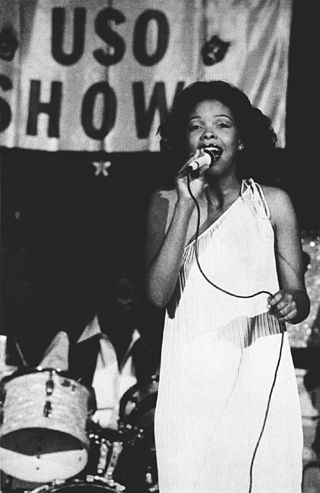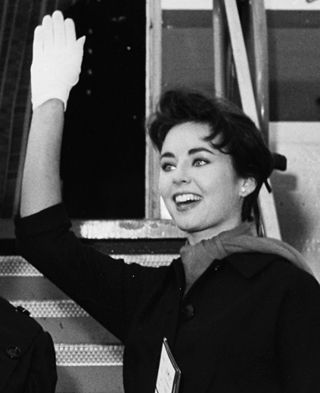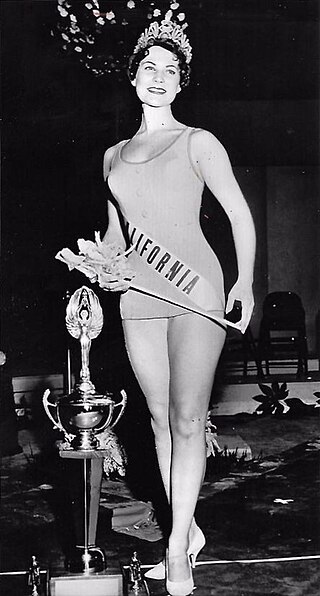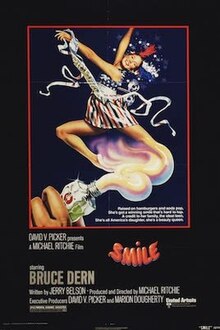
A beauty pageant is a competition that has traditionally focused on judging and ranking the physical attributes of the contestants. Pageants have now moved towards including inner beauty, with criteria covering judging of personality, intelligence, talent, character, and charitable involvement, through private interviews with judges and answers to public on-stage questions. Pageant titles are subdivided into Miss, Mrs. or Ms., and Teen – to clearly identify the difference between pageant divisions.

Miss America is an annual competition that is open to women from the United States between the ages of 18 and 28. Originating in 1921 as a "bathing beauty revue", the contest is judged on competition segments with scoring percentages: Private Interview (30%) – a 10-minute press conference-style interview with a panel of judges, On Stage Question (10%) – answering a judge's question onstage, Talent or HER Story (20%) – a performance talent or 90 second speech, Health and Fitness (20%) – demonstrated physical fitness onstage dressed in athletic wear, and Evening Gown (20%) – modeling evening-wear onstage.

Miss Puerto Rico is a national title bestowed on the women representing Puerto Rico in international beauty pageants.

Smile is a musical with music by Marvin Hamlisch and book and lyrics by Howard Ashman. It was originally produced on Broadway in 1986. The musical is based loosely on the 1975 comedy film of the same title, from a screenplay by Jerry Belson.

Miss Venezuela is a Venezuelan beauty pageant operated by the Cisneros Group. Founded in 1952, it currently selects Venezuelan representatives to Miss Universe, Miss World, and Miss International. The current national director of Miss Venezuela is Miss Universe 2013 Gabriela Isler.

The Miss Black America beauty contest is a competition for young African-American women. The pageant has garnered the support of artists, activists and performers including Stevie Wonder, Curtis Mayfield, and Oprah Winfrey. After 40 years, in 2009 the pageant had a "kick off" in Washington, D.C. to rebrand the competition. The first teen winner was Ashley Anglin. The first runner-up teen was Monet Jackson, a resident of Mitchellville, MD; and Destiny Welch, second runner-up and also an MD resident. The adult winner was DC native and MD resident, Miss Kamilla Collier-Mullin. The first runner-up Miss Cherie A. Bryant, a northern Virginia resident; and the second runner up was Miss Janesia Simmons in the adult pageant. It is known as the most divisive pageant in the world.
"Me Ol' Bamboo" is a song written by the Sherman Brothers for the motion picture Chitty Chitty Bang Bang. It was originally written to be choreographed as a morris dance for the film by Marc Breaux and Dee Dee Wood and adapted for the stage by choreographer Gillian Lynne who also created the choreography for Cats and The Phantom of the Opera.

Carol Ann Laverne Morris is an American actress, model and beauty queen who was the second Miss USA to win the Miss Universe title in the pageant's fifth edition in 1956. She was crowned by Hillevi Rombin, Miss Universe 1955, of Sweden.

Beautiful is a 2000 American comedy drama film directed by Sally Field, starring Minnie Driver and Hallie Eisenberg. The plot deals with the sacrifices that contestants in the Miss America pageant typically must make. The film had its world premiere at the Toronto International Film Festival and was released theatrically on September 29, 2000. It received negative reviews and was a commercial disappointment.

Lady Godiva Rides Again is a 1951 British comedy film starring Pauline Stroud, George Cole and Bernadette O'Farrell, with British stars in supporting roles or making cameo appearances. It concerns a small-town English girl who wins a local beauty contest by appearing as Lady Godiva, then decides to pursue a higher profile in a national beauty pageant and as an actress.

Little Miss Sunshine is a 2006 American tragicomedy road film directed by Jonathan Dayton and Valerie Faris from a screenplay written by Michael Arndt. The film stars an ensemble cast consisting of Greg Kinnear, Steve Carell, Toni Collette, Paul Dano, Abigail Breslin, and Alan Arkin, all of whom play members of a dysfunctional family taking the youngest (Breslin) to compete in a child beauty pageant. It was produced by Big Beach Films on a budget of US$8 million. Filming began on June 6, 2005, and took place over 30 days in Arizona and Southern California.
Miss Italia is a beauty pageant awarding prizes every year to young, female contestants from Italy. Since the first edition of the contest, in 1939, many of the contestants have gone on to notable careers in television and film.

The Miss Chinatown USA pageant, based on Chinese communities within the U.S., greets delegates around the country. The pageant has been an annual Lunar New Year event since 1958. The winners of this pageant represent the Chinese community and act as ambassadors promoting Chinese culture and heritage.
The Miss Teenage America Pageant was a United States beauty pageant started in 1961 as a pageant for high school girls. In the 1960s and 1970s, it was usually broadcast on the CBS network around November each year. The pageant was sponsored by Dr. Pepper. The original pageant ended after 1979, and the name rights were sold to Teen Magazine, which transformed the event into a mail-in contest which evaluated grades and volunteer work. The event ended after the 1998 Miss Teenage America was crowned, and Teen Magazine itself ceased operations in 2009.

Terry Lynn Huntingdon is an American actress and beauty pageant titleholder who was crowned Miss USA 1959.
"Beauty Pageant" is the third episode of the second season of the American comedy television series Parks and Recreation, and the ninth overall episode of the series. It originally aired on NBC in the United States on October 1, 2009. In the episode, Leslie serves as a judge in the Miss Pawnee beauty pageant and becomes determined to prevent an attractive, but talentless and unintelligent, contestant from winning.

Miss America 1984, the 57th Miss America pageant, was held at the Boardwalk Hall in Atlantic City, New Jersey on September 17, 1983, on NBC Network. Miss America 1983, Debra Maffett crowned her successor, Miss New York 1983, Vanessa Williams of Millwood, New York at the end of the nationally televised event. In July 1984, Williams was forced to resign over the unauthorized publication of nude photographs and was succeeded by first runner-up, Miss New Jersey Suzette Charles, who served as Miss America until September 15, 1984. Among the contestants who did not place among the ten finalists, Miss New Mexico 1983 Mai Shanley, eventually went on to win the Miss USA 1984 pageant on May 17, 1984.
A child beauty pageant is a controversial beauty contest featuring contestants under 16 years of age. Competition categories may include talent, interview, sportswear, casual wear, swimwear, western wear, theme wear, outfit of choice, decade wear, and evening wear. Depending on the type of pageant system, contestants may be found wearing anything from makeup to fake teeth, known as flippers, as well as elaborate hairstyles and custom-designed fitted outfits to present their routines on stage.
Nudes-A-Poppin' was an annual pageant in the United States for nude women and men competing in erotic dance. It was the best-known nude event in Indiana, and was held annually from 1975 until 2019.

What has become known as the first Miss America pageant was, at its start in 1921, an activity designed to attract tourists to extend their Labor Day holiday weekend and enjoy festivities in Atlantic City, New Jersey. Atlantic City's Inter-City Beauty Contest, as it was initially called, attracted over 1,500 photographic entries from around the country, all vying to win the "Golden Mermaid" award and cash prizes. With only 10 contestants, this would be the lowest number of contestants in the pageants history.














